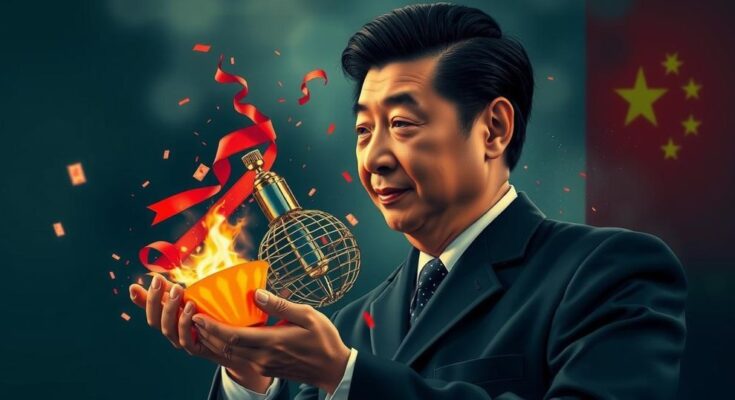North Korean troops’ deployment in Russia has sparked concerns regarding a coalition of authoritarian states against the West. The alliance, which includes Russia, China, Iran, and North Korea, reflects a shared enmity towards U.S. dominance. However, the relationship is strained as China must balance its ambitions with economic dependencies on the current international order, complicating Xi Jinping’s strategy of supporting autocratic allies while seeking stability for China.
The emergence of North Korean troops in Russia, reportedly to assist President Vladimir Putin in his ongoing invasion of Ukraine, has heightened concerns among Western nations regarding a potential coalition of authoritarian regimes aiming to disrupt democratic values. Notably, this alliance, comprising Russia, China, Iran, and North Korea, reflects a shared hostility towards the United States and its established international order. However, the nature of this coalition remains precarious, highlighting the level of chaos that Beijing is willing to tolerate in pursuit of its objectives. Since Russia’s invasion of Ukraine began in 2022, it has relied on Iran for drones and missiles while Chinese entities have also come under scrutiny for aiding Russian military efforts. Recently, U.S. officials noted the potential involvement of North Korean forces in the conflict, which Defense Secretary Lloyd Austin labeled as a “very, very serious issue” that could have significant repercussions in both Europe and Asia. Nonetheless, the underlying cooperation among these autocracies conceals important divisions. Russia pursues its expansionist ambitions through military aggression, while North Korea and Iran, both facing economic sanctions and isolation, are motivated to support Moscow for their own strategic advantages. In contrast, China’s strategy is more complex; it seeks global influence while heavily depending on existing international trade norms that could be jeopardized by direct military cooperation with Russia. Xi Jinping’s cautious stance towards international relations aims to stabilize the global landscape in order to safeguard China’s economic interests. Despite deepening ties with Russia and Iran, Xi has largely refrained from actively curtailing North Korea’s disruptive actions. This apparent tacit acceptance raises questions about whether China is inadvertently exacerbating instability in the hopes of using it to challenge Western hegemony. The U.S. has sought to persuade China to mitigate North Korea’s involvement in Russia, yet Xi’s silence following a recent meeting with Putin suggests a lack of urgency to address these concerns. Trade between China and both Russia and Iran has surged, indicating a growing economic reliance that may finance their respective militaristic endeavors. This thriving trade relationship highlights Xi’s willingness to accept the chaotic ramifications in favor of consolidating power amongst fellow autocratic states. While the destabilization instigated by these regimes could seem advantageous for China in weakening Western nations, it poses significant risks. For instance, an exacerbation of conflict in the Middle East could disrupt energy supplies critical to China’s growth. Additionally, the mobilization of North Korean troops risks escalating hostilities in Ukraine, potentially provoking responses from South Korea and other allies of the United States. Xi Jinping’s challenge lies in balancing the desire to disrupt the current international order with the pragmatic need to ensure China’s economic stability. At present, Xi’s strategy leans towards enduring volatility while preparing for a gradual shift towards self-sufficiency and diversified trade alliances beyond Western influence. However, the success of this gamble remains uncertain. As tensions rise, Xi may find that his alliances with autocratic partners do not yield the desired geopolitical outcomes, raising concerns about the long-term viability of his foreign policy strategy.
The situation arises within the geopolitical landscape shaped by Russia’s invasion of Ukraine and the growing bond among authoritarian regimes. The dynamics involve complex relationships influenced by historical antagonism towards the United States and the international order it maintains. The interactions among Russia, China, Iran, and North Korea highlight the intricate challenges China faces in balancing its ambitions for global influence while navigating its economic dependencies.
China’s involvement in the ongoing geopolitical crisis raises questions about the potential consequences of its support for autocratic states pursuing aggressive strategies. As Xi Jinping seeks to maintain stability while bolstering China’s international standing, he must contend with the volatile alliances he fosters. Without careful navigation, the consequences of such partnerships could ultimately backfire upon China, undermining its ambitions and economic interests in an increasingly interdependent world.
Original Source: www.theatlantic.com




